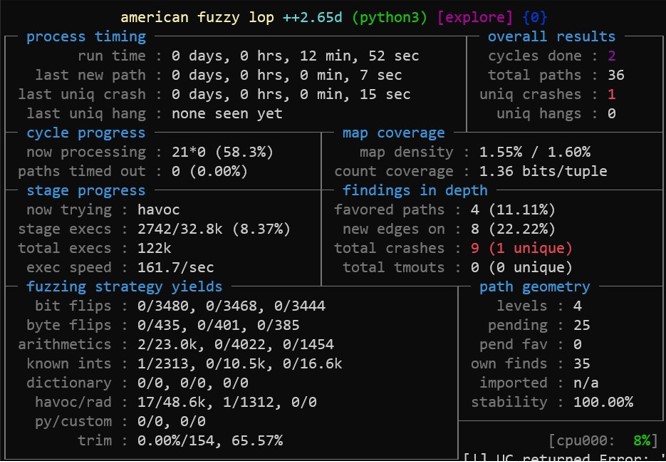
Qiling's usecase, blog and related work
Qiling is an advanced binary emulation framework, with the following features:
- Emulate multi-platforms: Windows, MacOS, Linux, Android, BSD, UEFI, DOS, MBR, Ethereum Virtual Machine
- Emulate multi-architectures: 8086, X86, X86_64, ARM, ARM64, MIPS, RISCV, PowerPC
- Support multiple file formats: PE, MachO, ELF, COM, MBR
- Support Windows Driver (.sys), Linux Kernel Module (.ko) & MacOS Kernel (.kext) via Demigod
- Emulates & sandbox code in an isolated environment
- Provides a fully configurable sandbox
- Provides in-depth memory, register, OS level and filesystem level API
- Fine-grain instrumentation: allows hooks at various levels (instruction/basic-block/memory-access/exception/syscall/IO/etc)
- Provides virtual machine level API such as save and restore current execution state
- Supports cross architecture and platform debugging capabilities
- Built-in debugger with reverse debugging capability
- Allows dynamic hotpatch on-the-fly running code, including the loaded library
- True framework in Python, making it easy to build customized security analysis tools on top
Qiling also made its way to various international conferences.
2022:
2021:
2020:
- Black Hat, Europe
- Black Hat, USA
- Black Hat, USA (Demigod)
- Black Hat, Asia
- Hack In The Box, Lockdown 001
- Hack In The Box, Lockdown 002
- Hack In The Box, Cyberweek
- Nullcon
2019:
Qiling is backed by Unicorn engine.
Visit our website https://www.qiling.io for more information.
License
This project is released and distributed under free software license GPLv2 and later version.
Qiling vs other Emulators
There are many open source emulators, but two projects closest to Qiling are Unicorn & Qemu usermode. This section explains the main differences of Qiling against them.
Qiling vs Unicorn engine
Built on top of Unicorn, but Qiling & Unicorn are two different animals.
- Unicorn is just a CPU emulator, so it focuses on emulating CPU instructions, that can understand emulator memory. Beyond that, Unicorn is not aware of higher level concepts, such as dynamic libraries, system calls, I/O handling or executable formats like PE, MachO or ELF. As a result, Unicorn can only emulate raw machine instructions, without Operating System (OS) context
- Qiling is designed as a higher level framework, that leverages Unicorn to emulate CPU instructions, but can understand OS: it has executable format loaders (for PE, MachO & ELF at the moment), dynamic linkers (so we can load & relocate shared libraries), syscall & IO handlers. For this reason, Qiling can run executable binary without requiring its native OS
Qiling vs Qemu usermode
Qemu usermode does similar thing to our emulator, that is to emulate whole executable binaries in cross-architecture way. However, Qiling offers some important differences against Qemu usermode.
- Qiling is a true analysis framework, that allows you to build your own dynamic analysis tools on top (in friendly Python language). Meanwhile, Qemu is just a tool, not a framework
- Qiling can perform dynamic instrumentation, and can even hotpatch code at runtime. Qemu does not do either
- Not only working cross-architecture, Qiling is also cross-platform, so for example you can run Linux ELF file on top of Windows. In contrast, Qemu usermode only run binary of the same OS, such as Linux ELF on Linux, due to the way it forwards syscall from emulated code to native OS
- Qiling supports more platforms, including Windows, MacOS, Linux & BSD. Qemu usermode can only handle Linux & BSD
Installation
Please see setup guide file for how to install Qiling Framework.
Examples
- The example below shows how to use Qiling framework in the most striaghtforward way to emulate a Windows executable.
from qiling import Qiling
if __name__ == "__main__":
# initialize Qiling instance, specifying the executable to emulate and the emulated system root.
# note that the current working directory is assumed to be Qiling home
ql = Qiling([r'examples/rootfs/x86_windows/bin/x86_hello.exe'], r'examples/rootfs/x86_windows')
# start emulation
ql.run()- The following example shows how a Windows crackme may be patched dynamically to make it always display the "Congratulation" dialog.
from qiling import Qiling
def force_call_dialog_func(ql: Qiling):
# get DialogFunc address from current stack frame
lpDialogFunc = ql.stack_read(-8)
# setup stack memory for DialogFunc
ql.stack_push(0)
ql.stack_push(1001) # IDS_APPNAME
ql.stack_push(0x111) # WM_COMMAND
ql.stack_push(0)
# push return address
ql.stack_push(0x0401018)
# resume emulation from DialogFunc address
ql.arch.regs.eip = lpDialogFunc
if __name__ == "__main__":
# initialize Qiling instance
ql = Qiling([r'rootfs/x86_windows/bin/Easy_CrackMe.exe'], r'rootfs/x86_windows')
# NOP out some code
ql.patch(0x004010B5, b'\x90\x90')
ql.patch(0x004010CD, b'\x90\x90')
ql.patch(0x0040110B, b'\x90\x90')
ql.patch(0x00401112, b'\x90\x90')
# hook at an address with a callback
ql.hook_address(force_call_dialog_func, 0x00401016)
ql.run()The below Youtube video shows how the above example works.
Emulating ARM router firmware on Ubuntu X64 machine
- Qiling Framework hot-patch and emulates ARM router's /usr/bin/httpd on a X86_64Bit Ubuntu
Qiling's IDAPro Plugin: Instrument and Decrypt Mirai's Secret
- This video demonstrate how Qiling's IDAPro plugin able to make IDApro run with Qiling instrumentation engine
GDBserver with IDAPro demo
- Solving a simple CTF challenge with Qiling Framework and IDAPro
Emulating MBR
- Qiling Framework emulates MBR
Qltool
Qiling also provides a friendly tool named qltool to quickly emulate shellcode & executable binaries.
With qltool, easy execution can be performed:
With shellcode:
$ ./qltool code --os linux --arch arm --format hex -f examples/shellcodes/linarm32_tcp_reverse_shell.hexWith binary file:
$ ./qltool run -f examples/rootfs/x8664_linux/bin/x8664_hello --rootfs examples/rootfs/x8664_linux/With binary and GDB debugger enable:
$ ./qltool run -f examples/rootfs/x8664_linux/bin/x8664_hello --gdb 127.0.0.1:9999 --rootfs examples/rootfs/x8664_linuxWith code coverage collection (UEFI only for now):
$ ./qltool run -f examples/rootfs/x8664_efi/bin/TcgPlatformSetupPolicy --rootfs examples/rootfs/x8664_efi --coverage-format drcov --coverage-file TcgPlatformSetupPolicy.covWith json output (Windows mainly):
$ ./qltool run -f examples/rootfs/x86_windows/bin/x86_hello.exe --rootfs examples/rootfs/x86_windows/ --console False --jsonContact
Get the latest info from our website https://www.qiling.io
Contact us at email info@qiling.io, or via Twitter @qiling_io or Weibo
Core developers, Key Contributors and etc
Please refer to CREDITS.md




